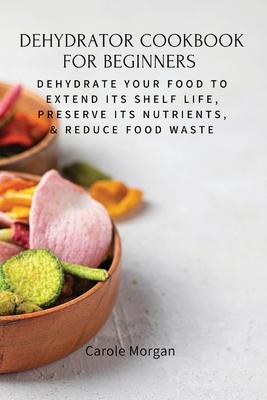Dehydration is an incredibly useful tool for long-term food storage and making the most of your garden harvest.
You've been thinking about dehydrating your food. But you're unsure if it's the right thing for you, or what exactly to do. You're worried about how difficult it is and whether it's worth it.
Well, we're here to tell you that it is!
Dehydration is a great way to store food for months or even years, and it's also a great way to bring your food out when you go camping, storing your meals in case of an emergency, and reduce food waste.
And best of all? It's easy and fun!
In this book, we'll show you exactly how to go about making your own delectable, nutrient-dense foods that are perfect for traveling or snacking on while watching TV at home.
After reading our book, you'll know everything there is to know about dehydrating-and we promise that once you find out how simple this process really is, you will fall in love with it!
This book covers:
- The Fundamentals Of Dehydration
- Food Dehydration Procedures That Do Not Require The Use Of Specific Machinery
- Meat
- Fruits
- Vegetables
- Herb & Powders
- Crackers
- Chips
- Snacks
- Sweets & Desserts
- Soups
- Dairy
- Flour
- Other Recipes
Make preservation pay off.
We all love to eat something tasty and sweet in between meals.
When you dehydrate fruits, their flavors not only become more concentrated but they get sweeter and therefore make the ideal snack for both kids and adults.
Derive maximum nutrition.
You've heard it over and over again; turn on the TV and there's some nutritionist telling us to eat five servings of fruits and vegetables a day.
We know it makes sense but sometimes it's not easy to squeeze them in.
You can solve the problem by having some dried fruits to throw on your breakfast cereal or in that brown-bag lunch.
Drying foods as soon as you bring them home seals in all their flavors, colors, and essential nutrients.
Many people think it's as good as eating the food fresh.
Enjoy preservative-free food.
If you're a label detective, you'll know that even a bag of apricots can contain ingredients that warrant an advanced degree in chemistry to decipher.
Dry your own foods and you'll know what's in them every time.
What else are you waiting for?
